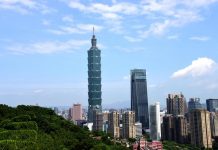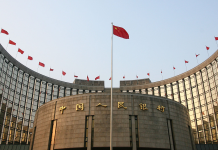BEIJING: The 44th Session of the World Heritage Committee of the UN Educational, Scientific and Cultural Organization (UNESCO) opened in Fuzhou, capital of China’s coastal province of Fujian, on July 16, after having been postponed for a year due to the coronavirus pandemic.
It was the first time the conference had been halted since the first session took place in 1977. The extended event, scheduled to conclude on July 31, combines online and offline events and will cover the agendas of both the 2020 and 2021 meetings. This is the second time a Chinese city has hosted the meeting since China joined the Convention Concerning the Protection of the World Cultural and Natural Heritage in 1985.
Chinese President Xi Jinping said in a congratulatory letter that to protect, inherit and make good use of the world’s precious treasures “is our shared responsibility, and is of vital importance to the continuity of human civilization and the sustainable development of the world.”
Xi said China is willing to work with UNESCO and other countries across the globe to strengthen exchanges and cooperation, promote dialogue and mutual learning, support the cause of world heritage protection, jointly safeguard the cultural and natural treasures of humanity, and promote the building of a community with a shared future for humanity.
China is now home to 55 UNESCO World Heritage sites, tying for first place with Italy. This year, China recommends Quanzhou, a port city in Fujian and a global maritime trade center in ancient China, for World Heritage site status consideration.
Audrey Azoulay, Director General of UNESCO, considers the session a return to some form of normalcy for World Heritage sites as the world still faces uncertainty and challenges due to the pandemic. She said the income from tourism of many sites was approximately halved in 2020, and called on people in the tourism industry to pay more attention to their value and help local residents.
A series of activities and side events are held during the session, pooling the ideas and wisdom of the participants, and putting forward new proposals and initiatives to address future challenges.
The session will review over 40 candidates for entry to the UNESCO World Heritage List. It will also examine the state of conservation of sites already inscribed on the list and make important updates based on their conditions. Liverpool, a city in the United Kingdom, which was placed on the List of World Heritage in Danger in 2012, was proposed for removal from the World Heritage List as a Maritime Mercantile City because “its outstanding universal value is no longer present.” The additions of the Italian city of Venice and its lagoon, and the Kathmandu Valley in Nepal to the List of World Heritage in Danger were also discussed.
UNESCO’s Priority Africa strategy is another focus of the session. Among a total of 1,121 sites on the World Heritage List, only 96, less than 9 percent, are in Africa. Tian Xuejun, Chinese Vice Minister of Education and Director of the Chinese National Commission for UNESCO, said it is of global significance to make the distribution of World Heritage sites more balanced.
– The Daily Mail-Beijing Review News exchange item






